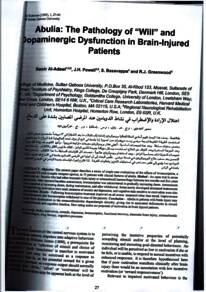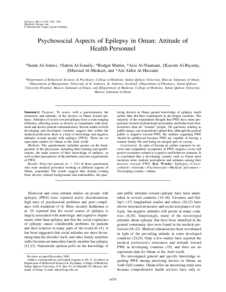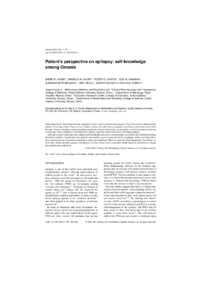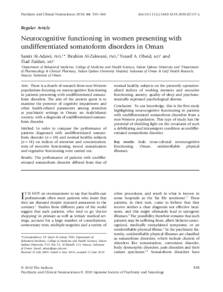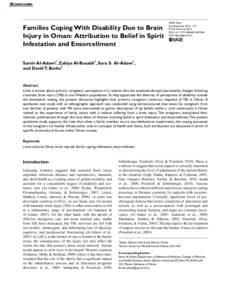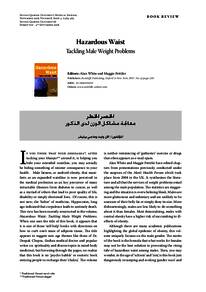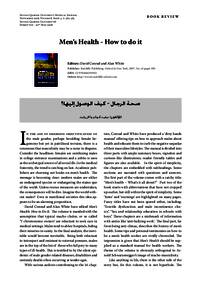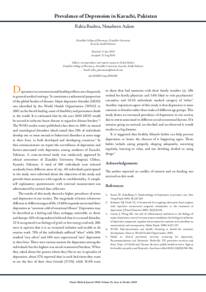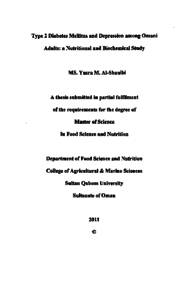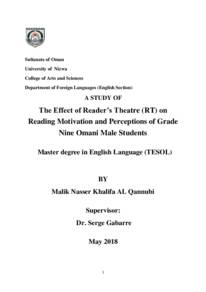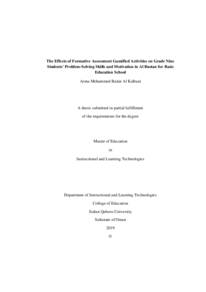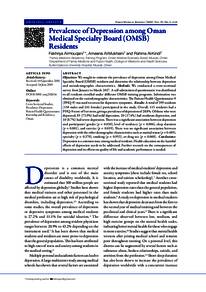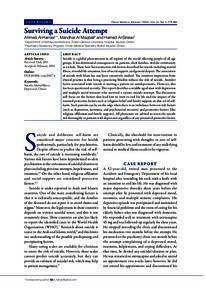Document
Abulia : the pathology of "Will" and dopaminergic dysfunction in brain-injured patients.
Contributors
Other titles
اعتلال الإرادة و الإضطراب في نشاط الدوبامين عند المرضى المصابين بشدة على الدماغ
Publisher
College of Medicine, Sultan Qaboos University.
Gregorian
1999-01
Language
English
English abstract
The present paper describes a series of single-case evaluations of the effects of bromocriptine, a dopamine D2 post-synaptic receptor agonist in 13 patients with clinical features cf abulia. Method - An open trial in seven males and six females who had either traumatic brain injury or subarachnoid haemorrhage between two months and five years previously. After repeated baseline assessments, bromocriptine was administered in gradually increasing doses, Assessments were repeated at increasing doses, during maintenance, and after withdrawal. Same newly developed structured instruments for quantifying motivation were used; measures of anxiety and depression, and cognitive tests sensitive to motivation were also administered. Results- Following bromocriptine treatment improved on all scores measured other than mood. Improvement was maintained after bromocriptine withdrawal in nine of the patients. Conclusion- Abulia in patients with brain injury may result from dysfunction in the mesocorticolimbic dopaminergic cirucity, giving rise to associated deficiencies in reward responsiveness and cognitive function. New rating are propsed of motivation in brain injured patients.
Sponsorship
SQU
Member of
Resource URL
Citation
Al-Adawi, Samir, Powell, J. H., Basavappa, S., & Greenwood, R. J. (2020). Abulia : the pathology of "Will" and dopaminergic dysfunction in brain-injured patients. Sultan Qaboos University Medical Journal, 1(1), 27–40.
Arabic abstract
تصف هذه الورقة سلسلة من التقييمات الفردية لتأثيرات بروموكريبتين ، ناهض مستقبلات الدوبامين D2 لما بعد المشبكي في 13 مريضًا بسمات سريرية cf abulia. الطريقة - تجربة مفتوحة في سبعة ذكور وست إناث ممن أصيبوا إما بإصابات دماغية رضحية أو نزيف تحت العنكبوتية بين شهرين وخمس سنوات سابقة. بعد التقييمات الأساسية المتكررة ، تم إعطاء بروموكريبتين بجرعات متزايدة تدريجيًا ، وتكررت التقييمات عند زيادة الجرعات ، وأثناء الصيانة ، وبعد الانسحاب. تم استخدام نفس الأدوات المهيكلة المطورة حديثًا لقياس الدافع ؛ كما تم إجراء مقاييس القلق والاكتئاب ، والاختبارات المعرفية الحساسة للدوافع. النتائج - تحسن بعد العلاج بالبروموكريبتين في جميع الدرجات التي تم قياسها بخلاف الحالة المزاجية. تم الحفاظ على التحسن بعد انسحاب بروموكريبتين في تسعة من المرضى. الخلاصة - قد ينتج Abulia في المرضى الذين يعانون من إصابات في الدماغ من خلل في cirucity الدوبامين القشراني المتوسط القشري ، مما يؤدي إلى أوجه القصور المرتبطة في استجابة المكافأة والوظيفة المعرفية. التصنيف الجديد مدعوم بالتحفيز لدى مرضى إصابات الدماغ.
Category
Journal articles

